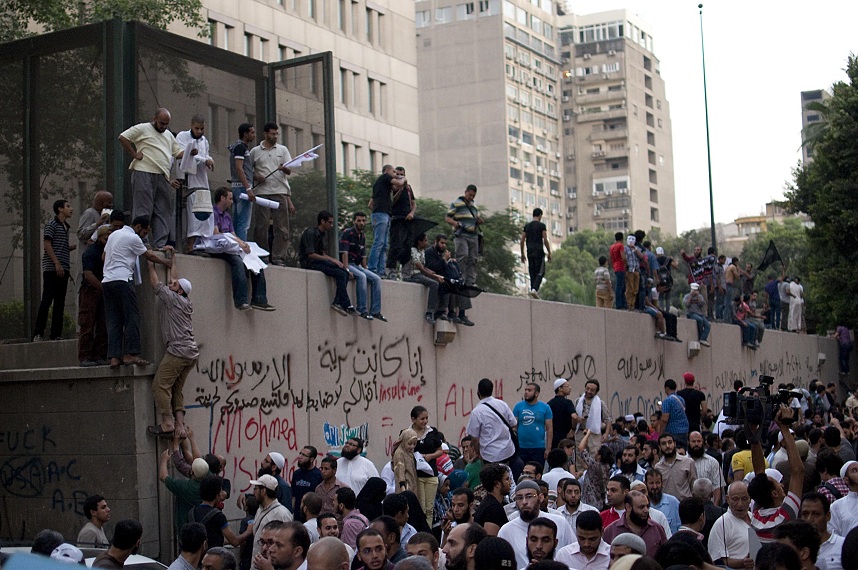BAGHDAD: A string of attacks against Shia pilgrims in the past three days killed 70 people in Baghdad, security officials said on Thursday, exposing the continued ability of insurgents to inflict bloodshed.
The death toll was another blow to the leaders of a country which remains dogged by sectarian strife and has only a caretaker government more than four months after a general election in which no clear winner emerged.
Almost half of those killed — 28 — died on Wednesday night when a suicide bomber wearing an explosives-filled belt struck pilgrims in Adhamiyah, a Sunni district across the Tigris river from Kadhimiyah, in the north of the capital.
Kadhimiyah is named after Musa Kadhim, the seventh of 12 revered imams in Shia Islam, who was poisoned in 799 AD, and whose death tens of thousands of the faithful have honored in recent days.
Many of the worshippers crossed a bridge between the two neighboring districts to reach the shrine. The suicide bomber also wounded 136 people while 11 others were killed Wednesday across the capital in a series of bomb attacks.
The new death toll issued on Thursday came as tens of thousands of Shia faithful started to disperse from the shrine and make their way home amid chaotic scenes as many of them looked for a lift from passing cars and buses.
Five bombings in the capital killed 11 people and brought the number of wounded to more than 400 people since Tuesday, the officials said.
A roadside bomb in the central Bab Al-Muazam neighborhood killed four and injured 46, while a second bomb in the southeastern Mashtal district killed three and wounded 31, a security official said.
The Shia majority in Iraq have been a main target of Sunni Arab armed groups since the US-led invasion of 2003 toppled now executed dictator Saddam Hussein’s Sunni-dominated regime.
Pilgrimages to the Shia holy places have been repeatedly hit and heavy security was laid on for the pilgrimage.
Traffic was banned on Tuesday on several bridges spanning the Tigris River, increasing already bad congestion in the capital, where control on vehicles is already complicated by hundreds of security checkpoints.
Motorcycles and carts were also prohibited, but the extra measures failed to protect travelers to the mausoleum, which had previously been targeted.
In April 2009, two female suicide bombers detonated their payloads near the shrine, killing 65 people, including 20 Iranian pilgrims, and wounding 120 others.
The threat of violence did not dent the enthusiasm of the pilgrims, some of whom were planning to pray for a breakthrough in the political deadlock that has blocked a new government taking office after March 7 parliamentary polls.
Iyad Allawi, a Shia former premier, insists as the election’s narrow victor that he should become prime minister, especially as his broadly secular Iraqiya coalition had strong backing in Sunni-dominated provinces.
He has warned that a failure to see Sunni Arab voters properly represented in power could reignite the sectarian violence that saw tens of thousands killed in the years after Saddam’s ouster.
Allawi narrowly pushed serving Prime Minister Nuri Al-Maliki’s Shia-led State of Law alliance into second place in the election, but the incumbent is doggedly fighting to stay on and serve a second term.
US Vice President Joe Biden, on a three-day visit to Baghdad at the weekend, appealed to Allawi, Maliki and other political leaders to compromise and end a political hiatus which comes as American combat troops leave the country.
There are currently 77,500 US soldiers in Iraq but this number will fall to 50,000 by August 31 as the combat troops withdraw, leaving a 50,000-strong training and advisory force behind which is due to pull out by December 2011.


